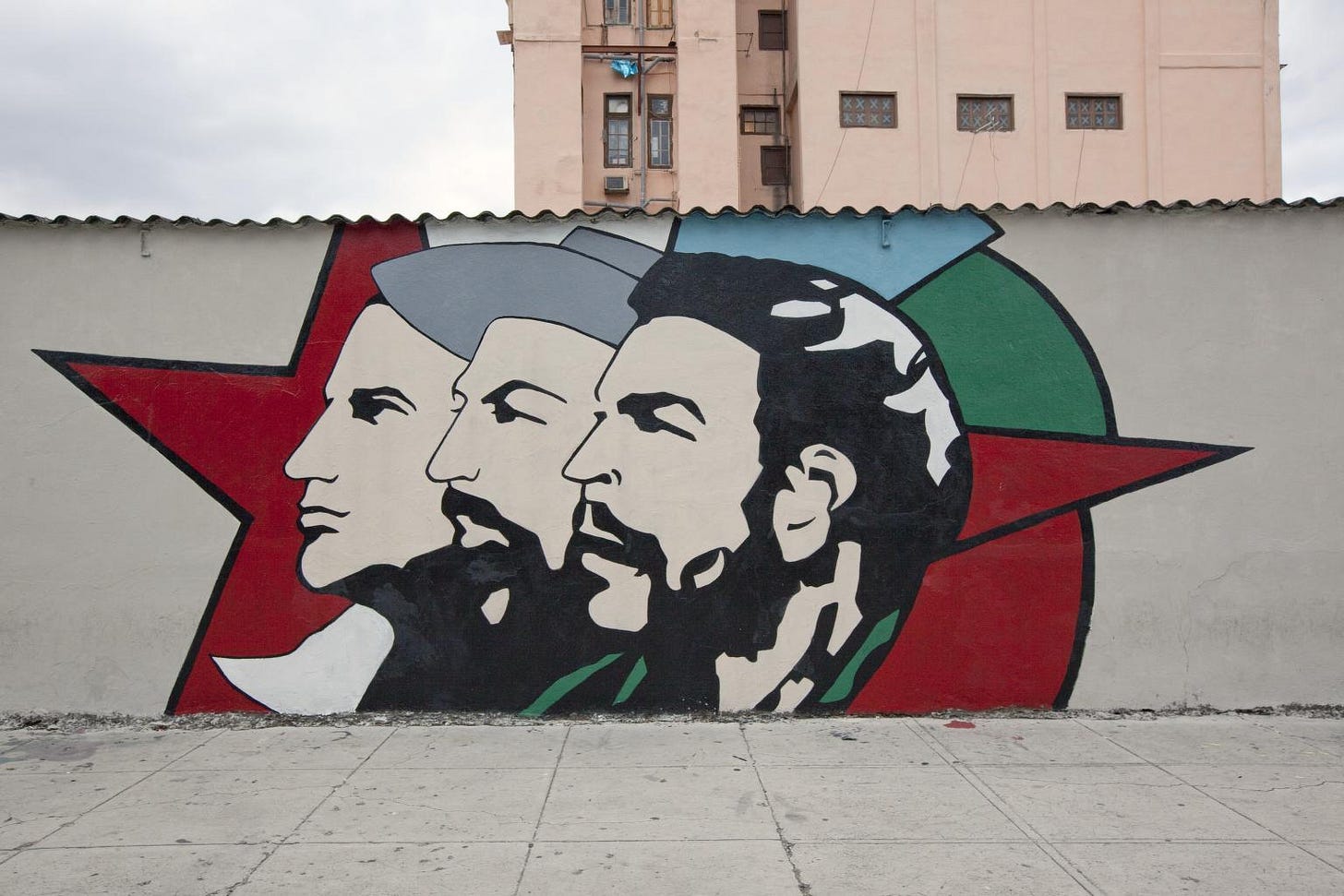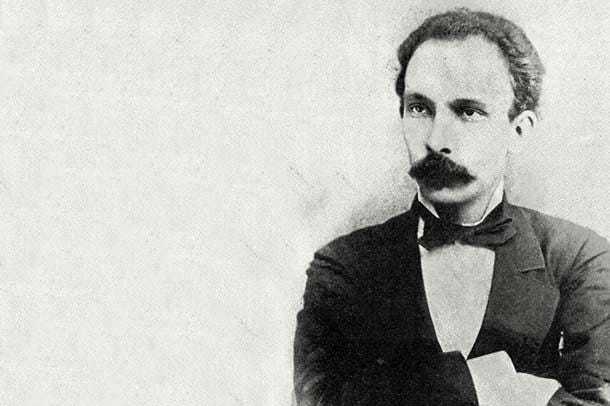The Truth Matters
On Revisionist History
Wherever you go in Havana, you see murals of Fidel, Che, and the other so-called “heroes” of the Revolution. They are on walls, in schools, on statues, on banners, and at every corner. Their faces are impossible to escape. These men once fought against a dictatorship in the 1950s, only to become worse than the system they claimed to oppose.
In Cuba, we have a saying for this. El remedio fue peor que la enfermedad. The remedy was worse than the illness.
The faces of Fidel and Che are mixed in with another face that doesn’t belong with theirs: the face of José Martí. Martí was a poet, a philosopher, and the most important leader of Cuba’s fight for independence from Spain. He gave his life for this cause. Martí wanted freedom. He believed in democracy. He believed in the power of ideas.
And yet in Cuba today, you often see Martí’s face painted right alongside Fidel’s. The government wants you to believe there is some invisible connection between them. But the truth is Martí would have fought against Castro. Martí would never have accepted a regime that crushed civil rights, silenced dissent, and banned free thought.
That hasn’t stopped the Castros from trying to rewrite history.
Once, I went home from school and proudly told my uncle that, “Martí was the intellectual author of Fidel Castro’s Revolution.”
My uncle looked around, lowered his voice to make sure he wasn’t heard, and without mincing words told me, “That is bullshit.”
My uncle had never cussed around me before, so I was shocked. He continued. “Martí would be the first one to rise up and oppose Castro. Is this whole thing about him being the “intellectual author” something you learned in school?”
“Yes,” I told him. “It’s in my history book.”
I grabbed my history book out of my backpack and showed him.
“Victors get to rewrite history,” he said, scanning the pages of the book. “That’s one thing autocrats do. They rewrite the books, they go after museums, they go after the artists. They go after culture.”
“Why?” I asked.
“Because if you can dictate what the next generation learns, then they’re easier to control. Over time, these lies get told so often that eventually all those who knew the truth are dead or disappeared and those who grew up hearing this revised version don’t know any better.”
I don’t know if I fully understood all that he was telling me, but I never forgot it.
“Be an independent thinker, “ he said afterward. “Of course, don’t get in trouble and don’t get your mom in trouble. Don’t publicly contradict your teachers, but know that they’re parroting what they have to say in order to survive. We’re all just trying to survive. But the truth matters.”
The truth matters.
Looking back now, I see how dangerous it was for him to say those words out loud. We lived in a country where one careless statement could land you in jail or worse. Yet he took that risk because it was important to challenge falsehoods.
What he told me was not just about Cuba. It was about life. Autocrats aren't the only ones who try to change history. Narcissists do it in their families. Companies do it in meetings. Governments do it when it benefits them. People in power always try to control the story because the story holds power.
In Cuba, the state-controlled narrative is everywhere. The textbooks, the museums, the murals, and the speeches all promote it. You learn early on that Fidel and Che are saints. You learn that Martí was their guiding light, when in reality, Martí would have seen through their lies immediately.
The more I think about it, the more I realize that surviving under authoritarianism involves learning to read between the lines. At home, if you are lucky, someone like my uncle whispers to you, “Don't believe everything you hear. Don't mistake propaganda for truth.”
Not everyone hears that whisper. Some grow up only knowing the official story. Some believe it wholeheartedly. Others learn too late and carry the regret of silence.
That's why I can still picture my uncle's face when he told me. I remember the urgency in his voice and how he wanted to make sure I would remember. He knew he couldn’t change the textbooks or tear down the murals. But he could share the truth and hope I would carry it forward.
And I have.
The battle between truth and falsehood never ends. Each generation has to fight it for themselves. Martí fought it in his time. My uncle fought it in his own quiet way. Now it is my turn.
I hope my kids will carry it forward too.
No matter what the victors say, no matter how many books they rewrite or murals they paint, the truth matters.
Thanks for reading.
Please, if you’re able, consider upgrading your subscription or making a one-time donation, below.
Venmo: @Israel-Sanchez-148



